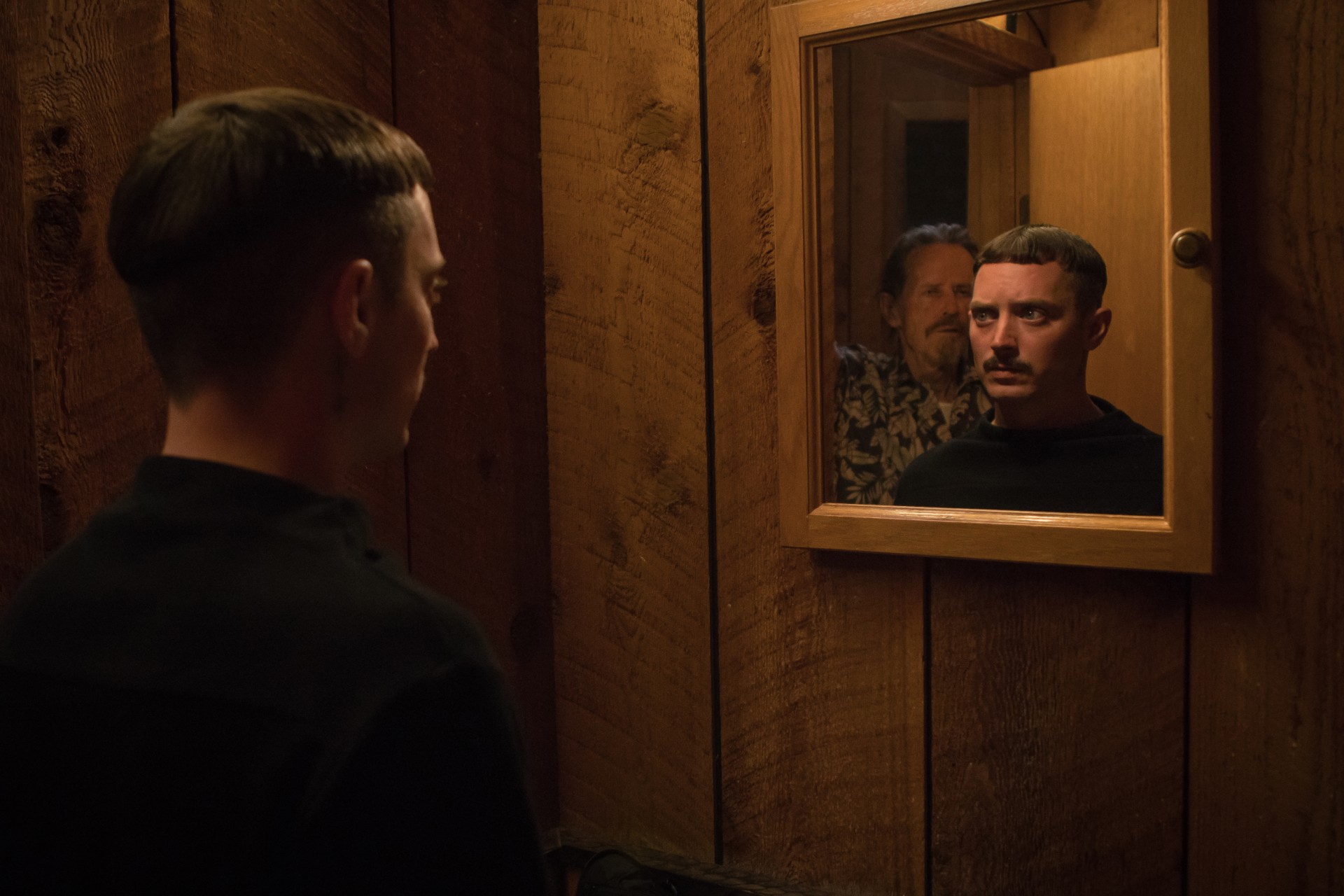Review: COME TO DADDY, Escalating Mayhem in Outlandish Father-Son Story
It is a joy to watch Elijah Wood give such a game performance in director Ant Timpson's outlandish father-son story.

I am drawn to father-son stories like a moth to flame. The difficult communication barriers, awkward processing of emotion. The silence and the rage. In the movies, these stories often culminate in the father expressing a deep pride or love at the path the son has taken. It gets me every time. Every. Time.
Come To Daddy takes an outlandish and consistently surprising journey to explore the bizarre nooks and crannies of masculinity and father-son estrangement. Norval Greenwood arrives in the middle of nowhere, literally lugging his bags up the craggy cliffs where his father’s remote ocean-side house is perched precariously.
Played by Elijah Wood in a pencil moustache and haircut that can charitably be described as "monk-hipster," Norval is also carrying a letter from his father who abandoned Norval and his mother in relative Los Angeles luxury and affluence, when Norval was five years old.
Awkwardly, almost begrudgingly, Norval is invited into his fathers home. The men could not be more different. Gruff, wiry, and played by Canadian character Stephen McHattie (Pontypool, Watchmen), the tentative attempts to suss out intentions on both sides yield stumbling phrases, repeated in peculiar rhythms. It is uncomfortably funny, but eventually slides into aggression.
Norval’s expensive mobile phone and his copy of The Celestine Prophecy (there is a complex joke there if you recall the early 1990s) get dashed on the rocks, along with with Norval’s fragile ego. He simply wants the elephant in the room addressed: Why did you send me the letter after 30 years of silence? The question is met with obstinance and passive-aggressive rage, as his father’s mysterious past surfaces from the basement of the house violently.
Having battered Norval’s fragile psychology, the tonally fluid film that follows sees director Ant Timpson and screenwriter Toby Harvard putting Norval through a series of escalating baroque situations designed to batter, bruise, and pierce actor Elijah Wood in ways that, at least tangentially, recall Sam Raimi’s treatment of Bruce Campbell in The Evil Dead.
The zombies and demons here are personal issues and inadequacies.The often low-key, absurdly dry sight gags continually deliver. Over the course of the escalating mayhem and bizarro sidesteps, Timpson never loses track of the original value proposition of the film: that we never really know who our fathers are, but look for their approval where we can, even if it might never come.
It is a joy to watch Elijah Wood give such a game performance here. For decades, Wood has inhabited interesting independent and genre roles, since his early successes as a young actor in Ang Lee’s The Ice Storm and Peter Jackson’s Lord of the Rings.
The last several years have been a rollercoaster of oddity and experimentation, and Come To Daddy is, in a way, a culmination of all the skills and traits that Wood has harnessed over those years. Put him in the same space as Stephen McHattie and sparks fly. Come To Daddy got me. Every. Time.
Review originally published during Fantasia in July 2019. The film opens in select U.S. theaters nationwide and is available on digital and VOD on February 7, 2020.





Do you feel this content is inappropriate or infringes upon your rights? Click here to report it, or see our DMCA policy.










